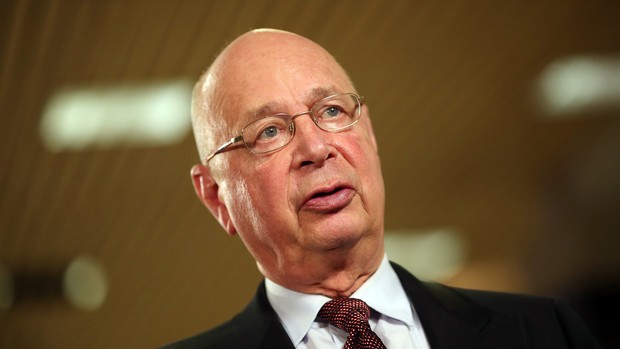Stocks Commodities Fall on Japan as Bonds Swiss Franc Gain Bloomberg Business
Post on: 9 Апрель, 2015 No Comment

A trader works on the floor of the New York Stock Exchange in New York. Photographer: Jin Lee/Bloomberg
April 12 (Bloomberg) — Stocks fell the most in a month, led by emerging markets, while commodities slid and Treasuries and the Swiss franc rose as earthquakes struck Japan. U.S. shares sank as Alcoa Inc.’s sales trailed estimates. The euro pared gains after topping $1.45 for the first time in 15 months.
The MSCI All-Country World Index of equities in 45 countries dropped 1.3 percent at 4 p.m. in New York as the MSCI gauge of developing-nation stocks retreated 1.9 percent and the Standard & Poor’s 500 Index lost 0.8 percent, paring a tumble of as much as 1.1 percent. Ten-year Treasury yields fell nine basis points to 3.50 percent, the franc strengthened versus all 16 major peers and the yen rose against 15. Oil capped the biggest two-day drop in 11 months amid signs prices above $100 a barrel are hurting demand.
Japan was hit by two earthquakes stronger than magnitude 6 today and the government raised the severity level of its nuclear crisis to the highest, matching the 1986 Chernobyl disaster. The country’s Economic and Fiscal Policy Minister Kaoru Yosano said the March 11 quake may hurt the economy more than forecast. JPMorgan Chase & Co. and Bank of America Corp. may post decreases in first-quarter revenue this week, analysts’ forecasts showed, following Alcoa’s report yesterday.
“Investors are taking some risk off the table,” said Madelynn Matlock, who helps oversee $14.4 billion at Huntington Asset Advisors in Cincinnati. “I don’t think there were any illusions that Japan was not one of the most serious nuclear accidents we’ve seen. In addition, there’s the earnings season over here. Alcoa disappointed investors. We expect all of them to do a little better than estimates. So, if they miss forecasts, that’s a double disappointment.”
PetroChina Drops
The MSCI Emerging Markets Index fell for a second day as the 4.9 percent slide by PetroChina Co. the country’s biggest oil producer, pushed the Hang Seng China Enterprises Index 1.8 percent lower. Russia’s Micex Index sank 2.5 percent, the most since March 10. Benchmark gauges in Hungary, the Czech Republic, Egypt, South Africa, Taiwan and South Korea retreated at least 1.4 percent.
Alcoa sank 6 percent, the most since August, to lead losses in 23 of 30 stocks in the Dow Jones Industrial Average after saying earnings were curbed by a weaker U.S. dollar and higher costs for energy and raw materials. Exxon Mobil Corp. and Chevron Corp. fell at least 2.3 percent to pace declines that sent energy producers to the steepest decline among 10 groups in the S&P 500, which slid for a fourth day in its longest losing streak since November.
‘Recovery Was Progressing’
Stocks maintained losses even as directors at Federal Reserve regional banks saw the economy improving despite higher energy prices and cuts in government spending at all levels, according to minutes of Board of Governors’ meetings in February and March.
“Federal Reserve Bank directors generally viewed recent information as showing the economic recovery was progressing,” the minutes said, adding that directors saw “downside risks posed by rising energy and commodity prices and by increased fiscal stringency.”
The cost of protecting U.S. corporate bonds from default rose to the highest level this month. The Markit CDX North America Investment Grade Index, which investors use to hedge against losses on corporate debt or to speculate on credit worthiness, added 1 basis point to a mid-price of 94.9 basis points as, according to index administrator Markit Group Ltd.
European Shares
Almost eight stocks declined for each that gained in the Stoxx Europe 600. BHP Billiton Ltd. the world’s biggest mining company, and Rio Tinto Group, the third-largest, slid at least 2.8 percent in London. Delta Lloyd NV sank 7.6 percent after Aviva Plc, Britain’s second-biggest insurer by market value, sold a 15 percent stake in the Dutch insurance company.
German investor confidence fell more than forecast in April after Europe’s central bank raised interest rates. The ZEW Center for European Economic Research in Mannheim said its index, which aims to predict developments six months in advance, slid to 7.6 from 14.1 in March. Economists expected a reading of 11.3, based on the median of 36 estimates in a Bloomberg survey.
The yen and Swiss franc rose as the earthquakes in Japan discouraged demand for higher-yielding assets. The yen strengthened versus all major counterparts except the franc, led by gains of more than 1.6 percent versus the Mexican peso, South African rand, Canadian dollar and South Korean won.
Japan’s Nuclear and Industrial Safety Agency raised the rating for its nuclear disaster triggered by the March 11 earthquake and tsunami to 7, the highest level. The accident at the Fukushima Dai-Ichi station was previously rated 5 on the global scale, the same as the 1979 partial reactor meltdown at Three Mile Island in Pennsylvania.
‘Incrementally Better’
Tokyo Electric Power Co. said its stricken nuclear plant, located about 220 kilometers (135 miles) north of Tokyo, may spew more radiation than Chernobyl before the crisis is contained.

The top American commander in the region said the situation at Japan’s Fukushima nuclear power plant is “improving every day,” and the government’s increase of the accident-severity rating doesn’t indicate the status is worsening.
“I think it’s actually getting incrementally better,” Navy Admiral Robert Willard, the head of the U.S. military’s Pacific Command, said in a Bloomberg Television interview today. “We regard it as static, not yet completely stable, but it’s improving every day,” he said.
The euro rose 0.3 percent to $1.4477 after earlier climbing above $1.45 for the first time since January 2010 as the International Monetary Fund and European Commission considered an 80 billion-euro ($116 billion) aid program for Portugal.
Two-Day Oil Slide
Crude extended its biggest two-day drop since May 2010. Oil for May delivery fell 3.3 percent to $106.25 a barrel today and is down 5.8 percent over the past two sessions. Today’s slide came after the International Energy Agency and International Monetary Fund said that prices above $100 a barrel are starting to hurt the global economy and Goldman Sachs Group Inc. forecast a “substantial” retreat. The IEA reported signs of an oil-demand slowdown in a monthly report today.
May futures surged 4.5 percent to $112.79 last week, the biggest gain in more than a month.
“It looks like last week’s strong gain was overdone,” said Gene McGillian, an analyst and broker with Tradition Energy in Stamford, Connecticut. “We’re heading for the $105 level, which was established as a base before the most recent run-up. There’s been a consensus that higher prices would have a detrimental impact on economic growth,” he said. “Once prices crested at $113, it looks like a lot of people thought things had gotten out of hand.”
Wheat and lead lost more than 4.5 percent to lead declines in 23 of 24 commodities in the S&P GSCI index of raw materials, which fell 2.6 percent for its biggest drop in almost a month. Cocoa had the only gain, rising 0.9 percent, amid concern that exports from Ivory Coast, the world’s largest producer, may be delayed as conflicts from a civil war left ports and banks in chaos.
To contact the reporter on this story: Stephen Kirkland in London at skirkland@bloomberg.net ; Rita Nazareth in New York at rnazareth@bloomberg.net
To contact the editor responsible for this story: Nick Baker at nbaker7@bloomberg.net.














